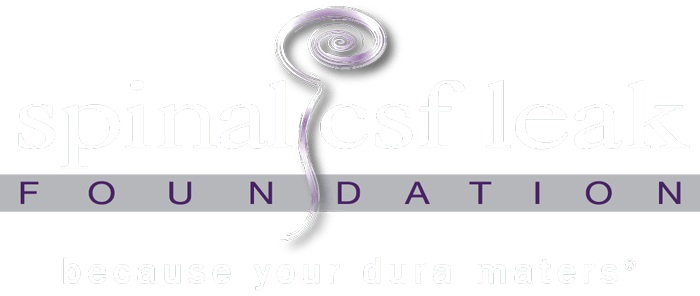
Jodi Blaszyk, PsyD, spinal CSF leak patient and clinical psychologist, discusses the first letter in her acronym ADAPT, for support in living with spinal CSF leak. To read the introduction to this series, click here.
The first letter in the ADAPT acronym is A, for Acceptance
Acceptance can seem like a tall order. But when I talk about acceptance, I don’t mean that we should passively accept a spinal CSF leak, or the ways in which our lives are affected. Acceptance also does not mean that we should accept our situation as a long-term fate and “give up.” In fact, quite the opposite. In this instance, acceptance refers to “radical acceptance,” a skill developed by Marsha Linehan, a renowned psychologist. It is used in an array of mental healthcare applications, including post-traumatic stress.
What is radical acceptance?
Radical acceptance is a way to help keep pain from turning into a form of suffering (Linehan, 2015). It means giving yourself a rest from fighting against what you can’t change and opening yourself up to learning what you can change. And it is particularly helpful when one feels powerless over their situation.
In my own experience with my leak, I remember fighting against the reality of what had happened. Especially when I was in pain and feeling helpless, it felt good to say, “this isn’t fair,” or “this shouldn’t be happening.” And in fact, recognizing and vocalizing those feelings was an important step in acknowledging what I was experiencing. But becoming stuck in those feelings can often compound the suffering we feel. And then suddenly not only are we in physical pain, but we are also in emotional pain at the injustice of it all.
When we are not fighting against our reality, we are free to do the work of surviving it.
Practicing radical acceptance is a way to acknowledge the reality of what we’re experiencing without becoming caught up in it. In the context of a spinal CSF leak, this may mean saying to yourself, “I am in pain”—and simply agreeing with that statement. Not blaming yourself for it, or feeling angry, or finding reasons for it. Just acknowledging reality, without judgment. This kind of radical acceptance allows us to cast aside any self-blame, shame, or guilt, and can be useful in helping us to break free from negative emotions and counterproductive thoughts (Linehan, 2015). When we are not fighting against our reality, we are free to do the work of surviving it.
The practice of acceptance
Granted, this kind of acceptance does not happen overnight. It is subtle and constant work that must be practiced and realized over time, ideally with a trusted therapist or counselor. And, as with progress and learning of any kind, steps toward acceptance and recovery frequently occur in a non-linear manner, taking one step forward and three steps back. When trying to manage life with the burden of a spinal CSF leak, it is easy to get lost in thoughts about a particularly troubling symptom, or to focus only on what you are unable to accomplish. Yet, the next day you may be able to complete one or two small tasks, or feel a hint of improvement. Acceptance helps us see that bigger picture. It frees us from the feeling of failure and helps us focus on what we can do, rather than only on what we cannot.
Click here to read about the next letter in our acronym: D, for Diagnosis.
To see all the ADAPT articles:
Click here to read about the first letter in the ADAPT acronym: Acceptance.
Click here to read about the next letter in the ADAPT acronym: Diagnosis.
Click here to read about the next letter in the ADAPT acronym: Advocate (and educate).
Click here to read about the next letter in the ADAPT acronym: Plan.
Click here to read about the final letter in the ADAPT acronym: Thrive.
Click here to read about what Jodi learned during her year of ADAPTation.
Citations
Linehan, M. (2015). DBT Skills Training Manual. Second Edition. New York, NY: The Guilford Press.
Further Reading
Book: Building a Life Worth Living, by Marsha Linehan (2021). New York, NY: Random House Publishing Group.
Article: Radical Acceptance Can Keep Emotional Pain From Turning Into Suffering, by clinical psychologist Dr. Jenny Taitz
This content is provided for general informational and educational purposes only and is not intended or implied to be a substitute for professional medical advice, help, diagnosis, or treatment. If you think you have an emergency, please call your doctor or emergency services immediately. To find a mental health provider, you can visit the ADAA Find a Therapist directory. If you are in a mental health crisis, call the National Suicide Prevention Lifeline at 988 or reach out to the Crisis Text Line by texting HOME to 741741 to connect with a crisis counselor.
